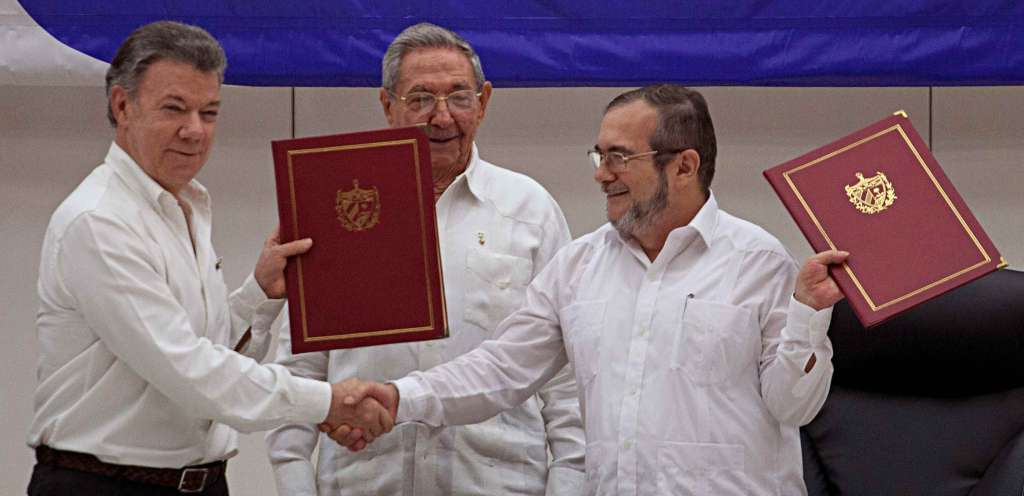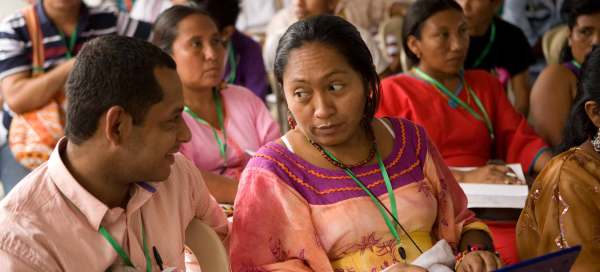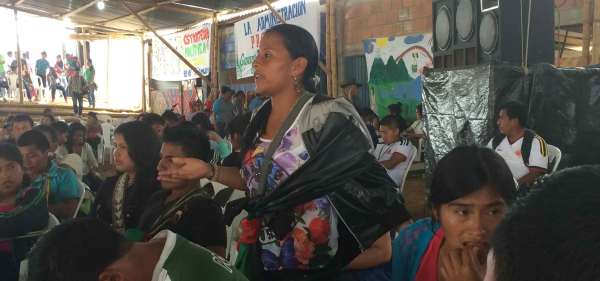 CEET/Newscom
CEET/NewscomWith the announcement of a definitive ceasefire agreement last week, the Colombian government and FARC guerillas took a significant step toward peace. Signed by the two parties in Havana, this partial agreement is meant to serve as a prologue for the final peace accord, which, when signed, will put an end to 52 years of war and hostilities.
This is an outstanding achievement for Colombia and the surrounding region. It opens greater opportunities for Colombians to make their nation a more safe, just, and equal place to live. And it encourages international organizations, including the Ford Foundation, to continue to support these efforts.
Very few Colombians are old enough to remember a life without gruesome massacres, disappearances, kidnappings, and forced displacement. The country’s conflict survived the end of the Cold War, the peaceful transitions in Central America, and the disbandment of the last guerrilla groups in many other places. Over that time, it has had devastating impacts on citizens, the economy, and society. It is estimated that more than 220,000 Colombians were killed during the war and more than 6 million were forcibly displaced. And the war’s financial cost is massive.
Beyond such quantifiable impacts, one of the most insidious effects of the conflict was that it obscured Colombia’s social problems. This is partly because as a result of the conflict, national politics became intertwined with violence. For example, social protests were regularly rejected as “terrorism,” and movement leaders and activists were often killed, persecuted, or exiled. While poverty in Colombia has fallen to around 29 percent of the population, it remains one of the most unequal places in the world. Vast areas lack basic services, and don’t benefit from economic growth.
The significance of the agreement reached in Havana goes far beyond the scope of the interests of two warring factions. Fortunately, negotiators seem to understand that this is an opportunity for people who have been excluded and marginalized to reap the benefits of modernization. The agenda of the talks includes not only bilateral issues but also ambitious proposals on rural development, drug policies, political participation, and transitional justice.
Despite reaching this milestone, the nation is still divided about the peace talks. Indeed, the government has proposed a vote to ask Colombians whether they support or reject the final agreement, expected to be signed in Havana in the next few weeks. Led by former Colombian president Álvaro Uribe and others, a well-organized opposition claims the peace process means “negotiating with terrorists” and “capitulating to the guerrillas.” Paradoxically, the military defeat of the guerrillas, if not definitive, created the illusion that a final victory against them was around the corner. As a result, there is now some question of why the state has to negotiate with a force that has supposedly been defeated.
The criticism of the peace process in Colombia is also a reflection of the country’s social inequality. While the sacrifices of war were minimally felt by the elites, the conflict fueled significant displacement of many people who are not as fortunate. And the people recruited to fight for both for the army and the guerrillas are disproportionately from poor and excluded communities.
Nevertheless, the momentum toward peace represents the greatest opportunity for Colombia to turn a terrible page in its national history. It’s time for the country to take care of the victims of the conflict, promote social justice, and focus on the deep social malaise that continues to hurt the most vulnerable.
Since 1961, the Ford Foundation in Colombia has actively supported dozens of civil society organizations, networks, and individuals on a variety of local, regional, and national initiatives: from innovation in agriculture in the Valle del Cauca region, to the protection of human rights defenders in the Magdalena Medio, to the promotion of the rights of indigenous peoples and Afro-Colombian communities. We continued this support even in the most extreme circumstances.
Today we are preparing to open Ford’s new regional headquarters in Bogotá, moving it from Santiago de Chile in a deliberate sign of the importance of our work in Colombia. And we now celebrate peace with those who made it possible: victims’ rights organizations, human rights defenders, social leaders, and resilient communities. These are the heroes and the survivors of a terrible war that must not happen again. From our new office, we will continue to actively engage with Colombians who are supporting the peace efforts, and work with them to ensure a more just, equal, and peaceful future.


